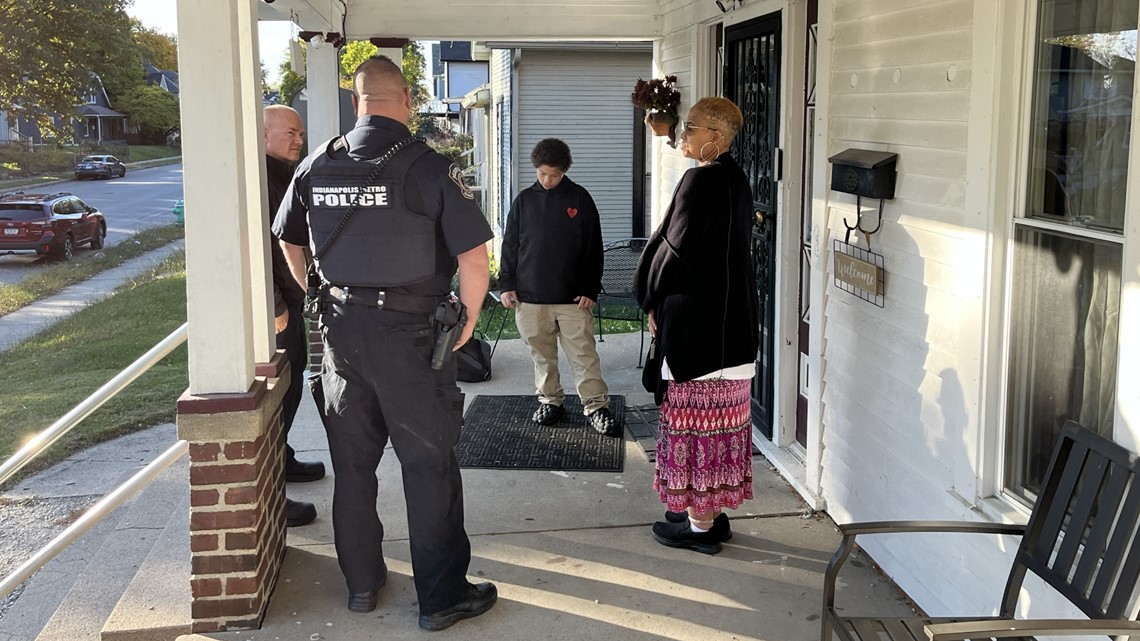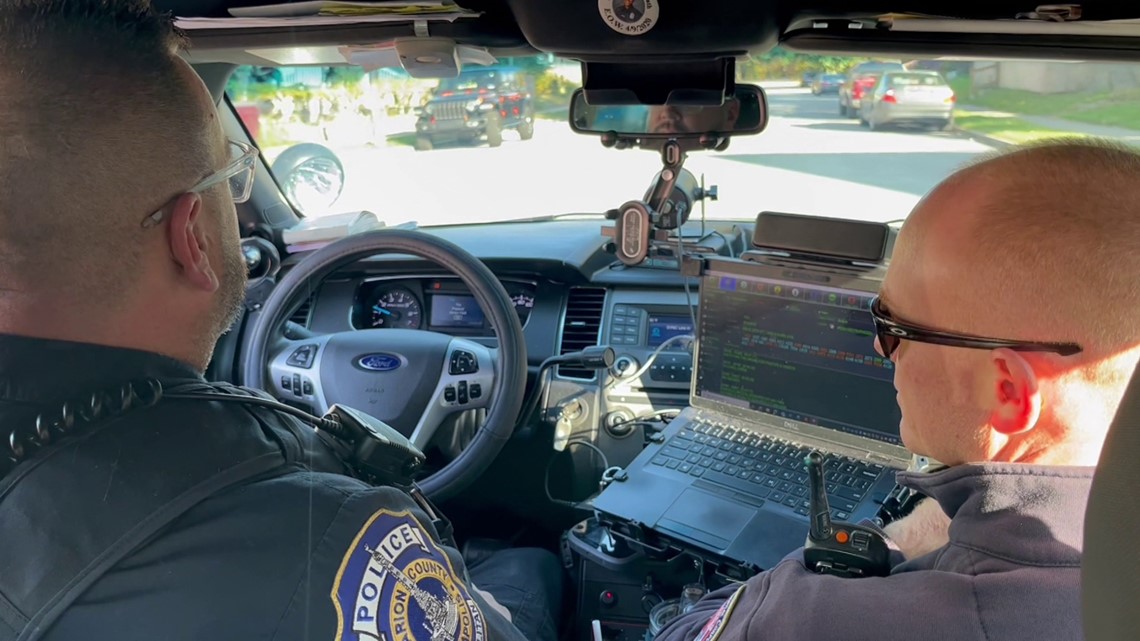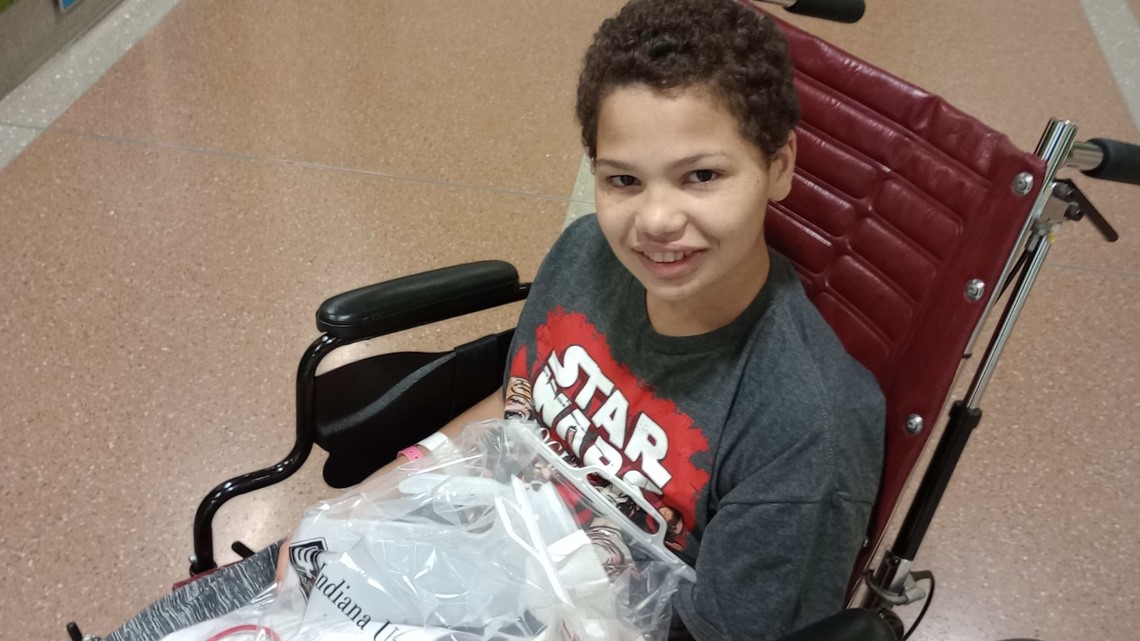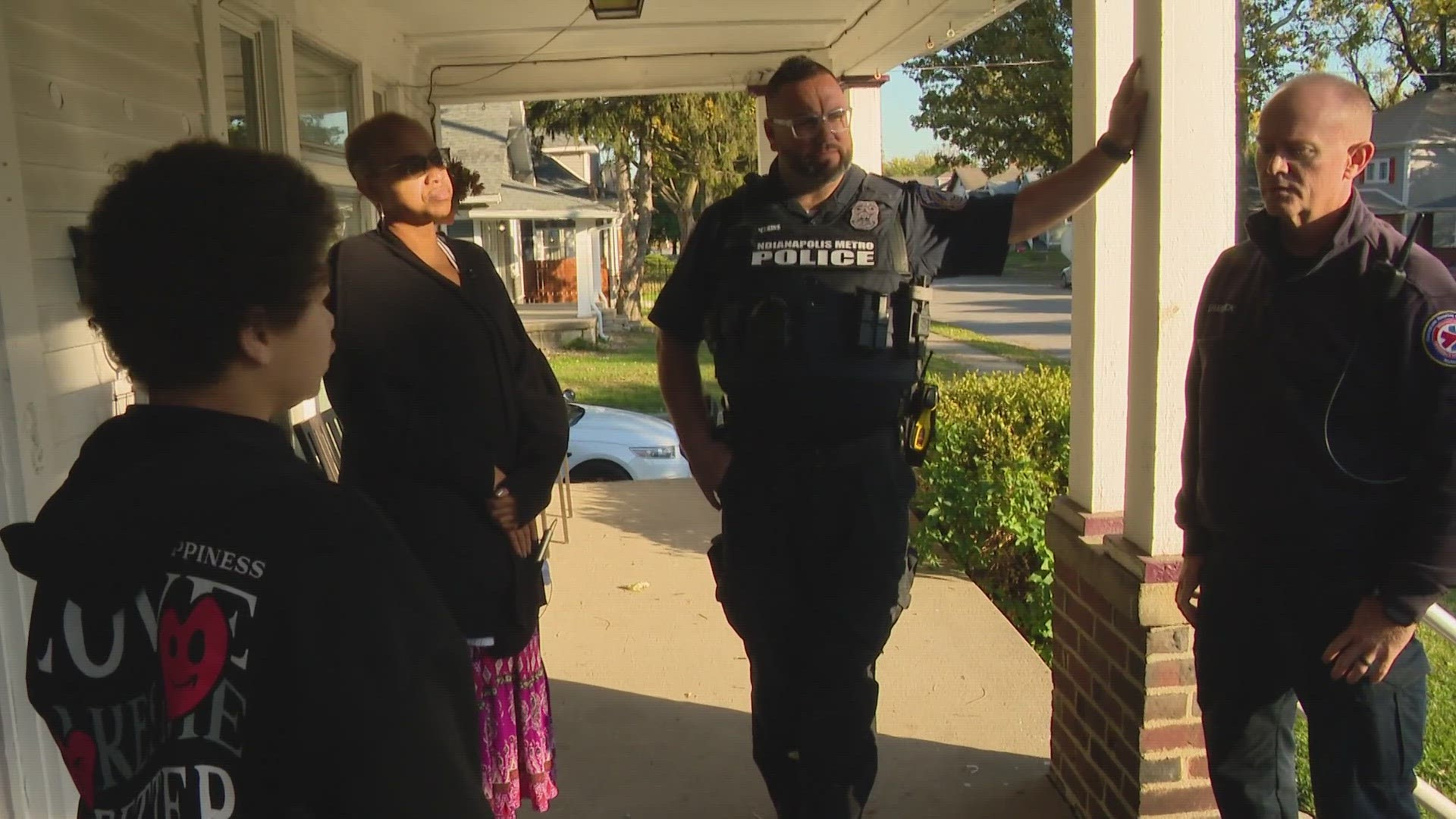INDIANAPOLIS — There is an effort to create peace in Indianapolis in the midst of violence. A police officer is paired up with a paramedic and responding to 911 calls together in one of the poorest neighborhoods in the city. The approach is saving lives and building relationships.
Officer Adam Perkins and paramedic Shane Hardwick ride together, answering 911 calls on the far east side of Indianapolis. But one morning, their assignment was to check on a teen boy who survived an accidental gunshot wound to the chest in June.
"Fortunately, we were in the neighborhood the day that Isaiah was shot. We were the first on the scene," said Hardwick, a community paramedic with Indianapolis EMS. "I've been doing EMS my entire adult life. Fortunately, there have been very few times where you walk onto a scene and there's a very clear thought it in your head that you're about to watch a child take his last breath. (Isaiah) was very gray. He was unresponsive. Barely breathing."
Hardwick said he started working on the boy.
"We were able to start oxygenating him and ventilating him. That started turning the tide a little bit. We had to do a needle decompression, where we stick a needle in the chest cavity to release some of that trapped air pressure and re-inflate the lung. We were able to do some pretty aggressive medical techniques very early on. We were able to do that because I bring an officer with me. So, the scene security is immediately," Hardwick said. "I firmly believe he was seconds away from going into traumatic arrest."


"Next thing I remember was waking up in the ambulance," Isaiah Barlow said.
The 13-year-old tells people he is alive because Hardwick was the first paramedic on the scene.
"As he said to me, 'God saved me, and He used Shane to do it,'" Shepherd Community Center pastor Jay Height said.
The paramedic and officer not only kept the boy alive, they have also kept up a relationship with Isaiah and his mom.
"They're a blessing, both of them," Jonelle Barlow said.


RELATED: Shooting at a Halloween party prompted 'Level 1 mass casualty' response by Indianapolis medics
Hardwick and Perkins are building trust and relationships with the people they save and serve on the far east side of Indianapolis. It is the mission behind Shepherd Community Center's Shalom Project that began eight years ago.
"I would just look for opportunities as I was taking radio runs to stay a little longer than most officers have the opportunity to do. Maybe talk a little longer. Ask some deeper questions, trying to get to the root of why we're there and how we can help," Perkins said. "About six months in, Shane was added because there were a lot of medical components that I was running into and mental health and addictions."
"We live in a culture of transaction, and we need to move to a relationship," Height said. "Most of all what folks need is a connection. They need someone to listen to them."


Shepherd pays the salaries for the reserve IMPD officer and Indianapolis EMS paramedic. They respond to emergencies and build a bond with people in this neighborhood.
"I said, 'It's 'Cheers,' where everyone knows your name,'" Height said.
"I was told to be Norm from 'Cheers.' That's the only direction I got," Perkins said. "It's just been a unique opportunity for us to engage in a community that is often feeling victimized and underserved and lonely and just show them that someone cares."
Isaiah spent two weeks in the hospital. His mom could not work because she was taking care of her son. So, Shepherd Community Center made mortgage payments and home repairs for the family. When Isaiah recovered, Shepherd got him involved in after-school activities — needs which met because this public safety duo was relational.


"They are the tip of the spear, and we've seen great results in that. We've seen great results like Isaiah where the moment happened. And now, it's for all the rest of the services of Shepherd to come to bear to help that family," Height said.
"They helped us after the fact with programs and support, and everybody in that community has been great," Jonelle said.
"We're still early in the game. There's still a lot of things bubbling up in this kid's life because of the trauma he's been through. We're not at the finish line. If it's a football field — we're just on the 20 heading the other way. It's going to continue to take a lot of effort," Height said. "Every kid in Indianapolis is going to be mentored. The question is, 'By who?' The streets or by us?"
Hardwick and Perkins believe the Shalom Project's emphasis on relational public safety is critical.
"That's where public safety drops off. You take a patient to the hospital, stabilize the scene and where Shalom is different, it doesn't end there," Hardwick said. "We identify unmet social needs through use of 911. So, when someone accesses 911 multiple times over, there's typically a social need that's going on. We try to respond in the moment and engage and start building relationships that will then build into a more successful outcome."
"We can tell anecdotal stories all day long where we know it's helping. We can look at some cost savings from a reduction in use of 911 for a particular household, but I think the bigger impact we're making is really battling that loneliness component," Perkins said.
Isaiah and his mom have learned they are not alone. They have first responders who now respond in other ways now that the emergency is over.
"I think it's bringing community policing and community para-medicine to another level," said Perkins said. "It looks more like old beat policing where everyone knew the officers that worked their neighborhood. I think some of the ways we do policing have to continue to exist in the form that they're in. But this adding another layer probably engages the community in a more positive way."

